Latest Update / Blogs
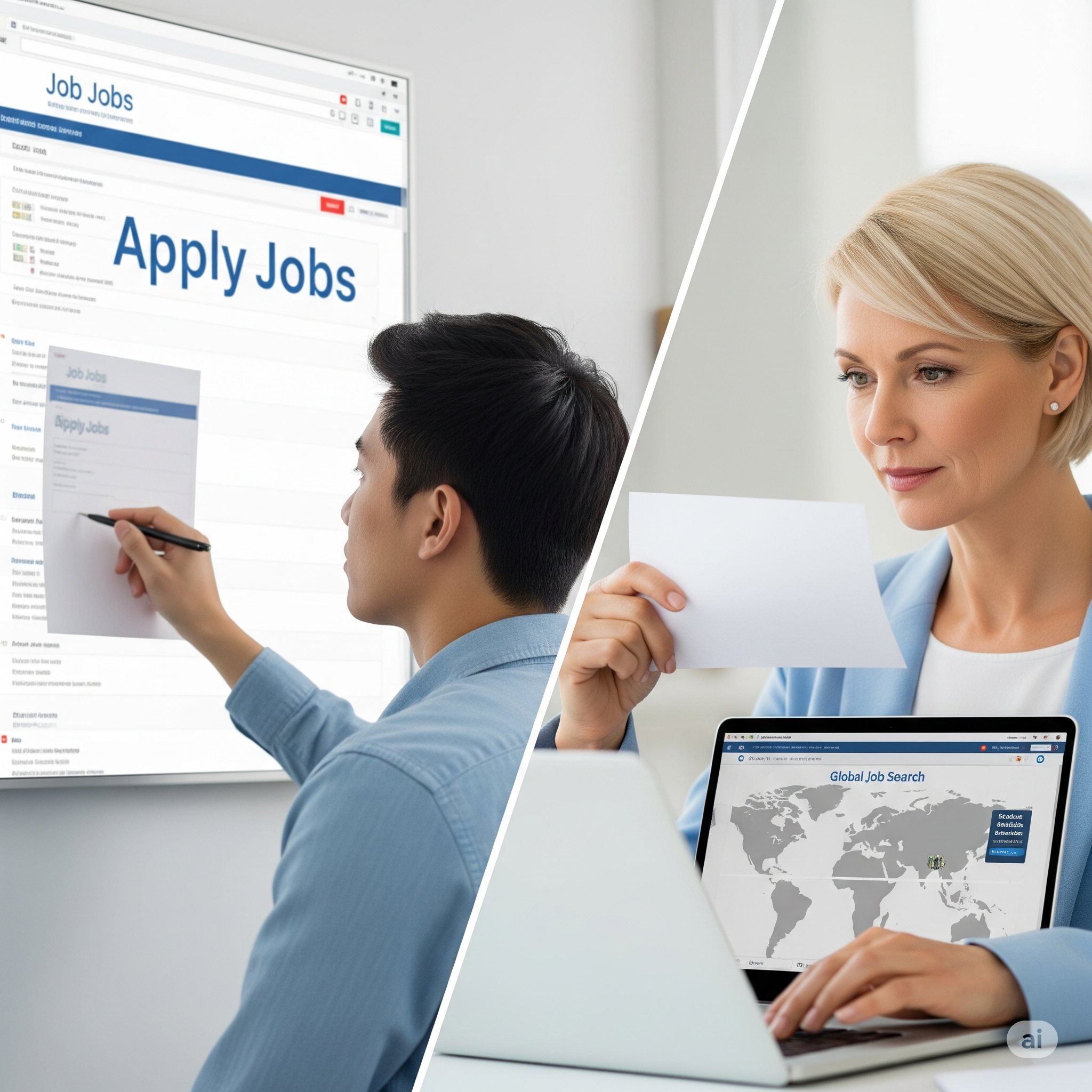
CV Distribution vs. Traditional Job Hunting: Which Gets You Hired Faster?
In today’s fast-paced world, job seekers are always looking for ways to speed up their job search and connect directly with employers. Two common approaches stand out: traditional job hunting and modern CV distribution services. But which one is more effective in 2025? Let’s dive into both methods to see how they compare in terms of reach, speed, and results.

What is Traditional Job Hunting?
Traditional job hunting involves:
- Browsing job boards like Indeed, Monster, or Glassdoor
- Applying to postings one by one
- Tailoring resumes and cover letters manually
- Waiting (often weeks) for responses
- Networking in-person or on LinkedIn
While this method is still widely used, it’s time-consuming and doesn’t always yield fast results, especially when hundreds of candidates apply for the same role.

What is CV Distribution?
CV distribution is a proactive approach where your resume is directly sent to a curated list of employers, recruiters, or HR departments—often across countries or industries. Services like JobPostmen do this by leveraging targeted databases to help your CV land in the right inbox.
Here’s what makes it different:
- Mass outreach: Reach hundreds or thousands of potential employers in one go
- Industry-specific targeting
- International distribution options
- Time-saving: No manual job applications
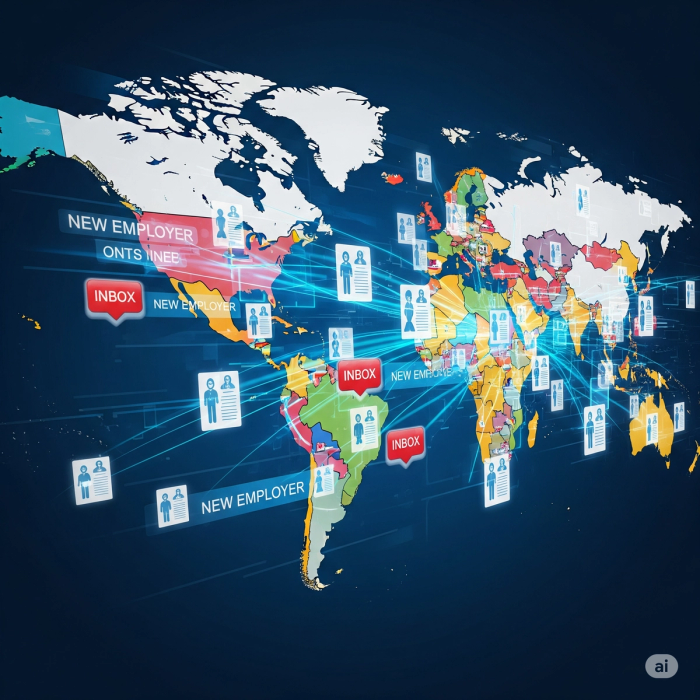
Why CV Distribution is Gaining Popularity in 2025
- Job competition is fierce. Recruiters often miss great candidates buried in a sea of applications.
- Global opportunities are increasing. Remote work and international hiring are more common than ever.
- Speed matters. The faster your CV reaches decision-makers, the better your chances.
Platforms like JobPostmen give you a head start by delivering your CV straight to the inbox of relevant employers worldwide, skipping the waiting game of job boards.
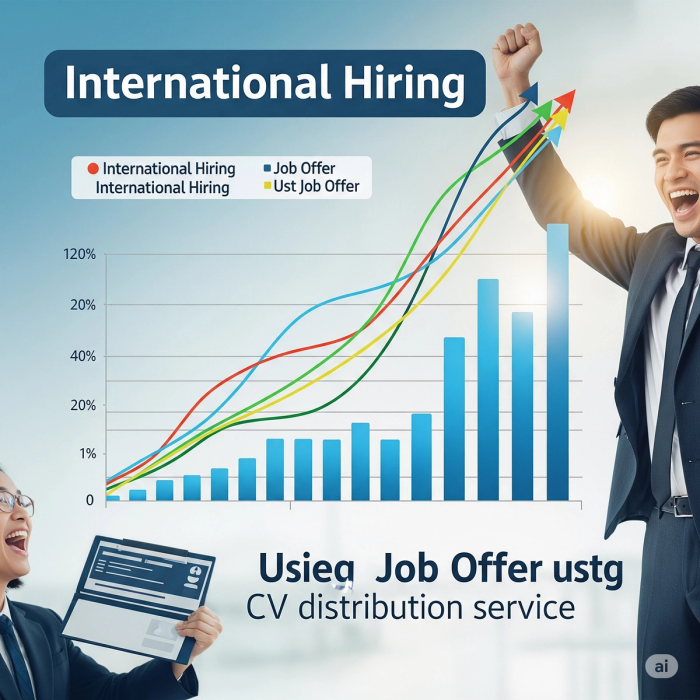
Traditional job hunting has its place, especially when paired with strong networking. But for job seekers who want to save time and increase visibility, CV distribution is a powerful tool that can dramatically improve job search outcomes.
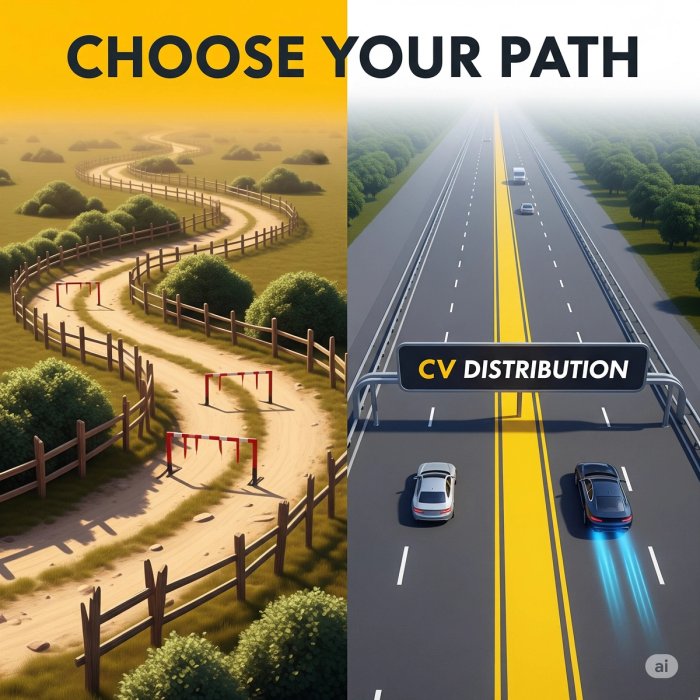
Want to distribute your CV globally in minutes? Start here with JobPostmen →
Read More
AI in HR: Revolutionizing Resume Analysis and Redefining Recruitment in the Corporate World
Introduction:
The recruitment landscape is undergoing a transformative shift, and at the forefront of this evolution is Artificial Intelligence (AI). What was once a manual, time-consuming, and biased process is now increasingly becoming streamlined, objective, and efficient—thanks to AI technologies. From resume screening to candidate shortlisting, AI is reshaping how corporate HR teams operate.
1. The Problem with Traditional Resume Screening
Recruiters often have to sift through hundreds, if not thousands, of resumes for a single job posting. This manual effort:
- Takes significant time and resources
- Risks unconscious bias
- May overlook qualified candidates due to human error or fatigue
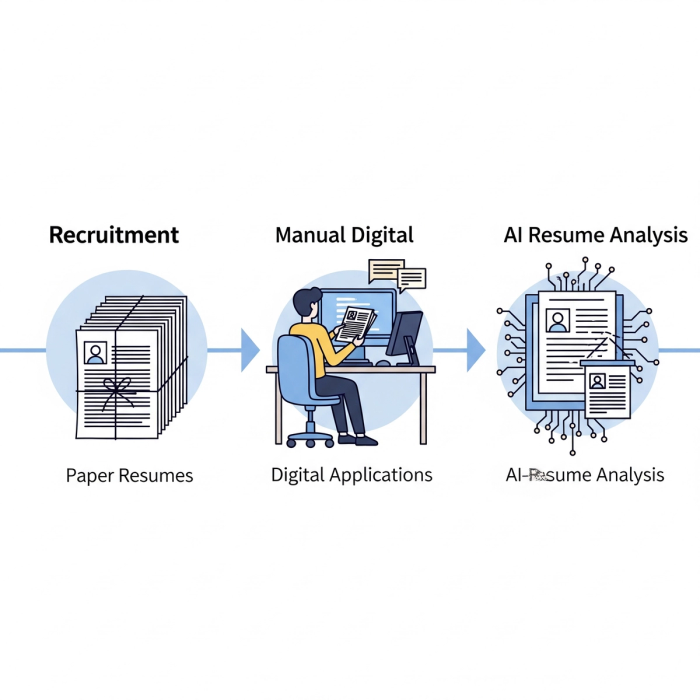
2. How AI is Changing Resume Analysis
AI tools are now capable of:
- Parsing resumes to extract key information like skills, experience, education, and certifications.
- Matching candidates to job descriptions based on keyword analysis, semantic understanding, and role-fit algorithms.
- Ranking resumes based on relevance, reducing the pool to the most qualified applicants.
Some systems also use Natural Language Processing (NLP) and Machine Learning (ML) to continually learn what traits are associated with successful hires.

3. Real-Time Benefits for Corporate HR Teams
- Speed: AI can analyze thousands of resumes in seconds.
- Consistency: It applies the same rules and filters to every candidate, reducing biases.
- Scalability: Especially useful for companies hiring at scale across regions or departments.
- Better Candidate Experience: Faster responses and fewer delays lead to improved interactions with potential hires.
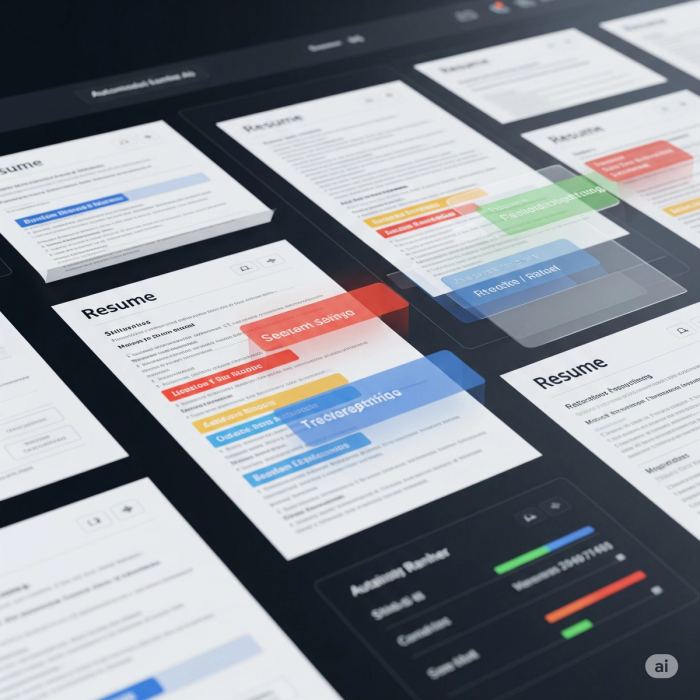
4. AI in the Broader Recruitment Process
AI isn’t just limited to resume screening. It also enhances:
- Chatbots for answering candidate FAQs
- Automated interview scheduling
- Predictive analytics to forecast a candidate’s likelihood of success or retention
- Video interview analysis to assess communication skills and sentiment
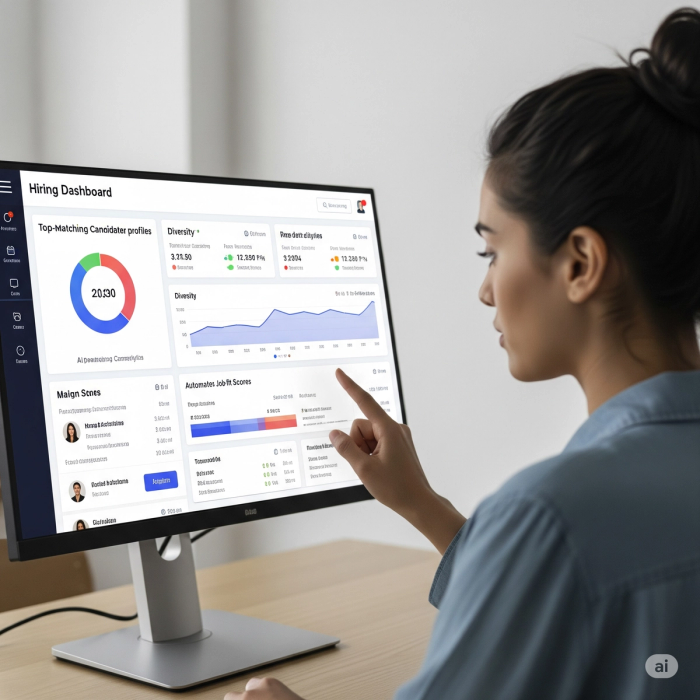
5. Addressing Ethical Concerns and Limitations
While AI enhances efficiency, it also raises concerns:
- Bias in algorithms: If not trained properly, AI can reflect societal biases.
- Transparency: Candidates often don’t know how they were filtered or selected.
- Over-reliance: Human judgment is still crucial, especially for cultural fit and soft skills.
HR leaders must ensure AI is audited, explainable, and inclusive.
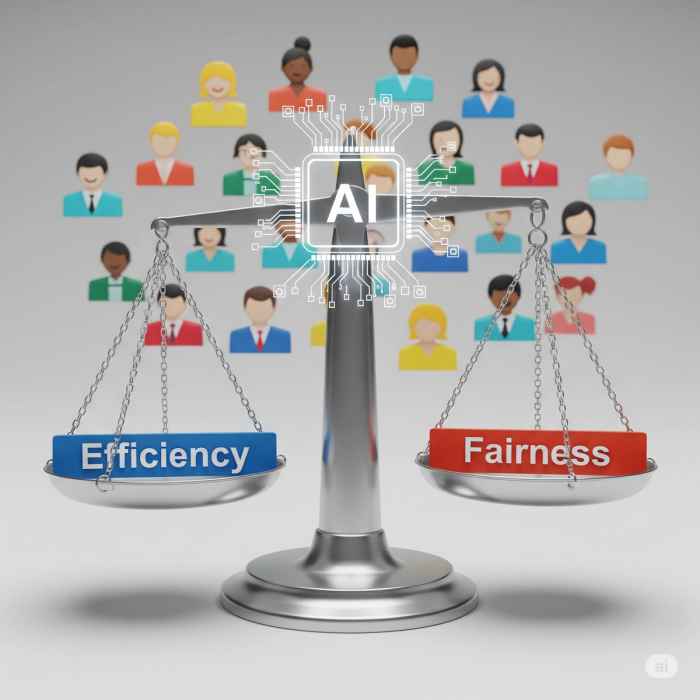
6. The Future of AI in Recruitment
As AI continues to evolve, we can expect:
- More personalized job recommendations
- AI-driven talent marketplaces
- Integration with employee performance data to improve future hires
Companies that adopt these technologies early will gain a competitive edge in attracting and retaining top talent.
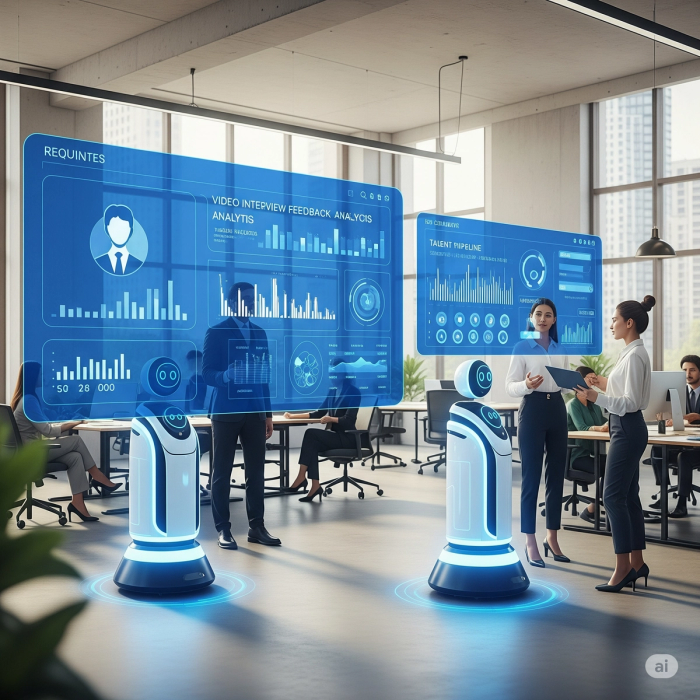
Conclusion:
AI is not here to replace HR professionals—it’s here to empower them. By automating repetitive tasks and offering data-driven insights, AI allows recruiters to focus on what truly matters: building relationships, evaluating potential, and creating inclusive workplaces.
Read MoreTop Queries Answered
Frequently asked questions
Trusted in more than 195+ countries and 15000+ Job Seekers Worldwide.
How CV Distribution Service Works?
We Send/Distribute your CV on your behalf using advanced email marketing system to distribute your CV to the Placement/Staffing Agencies and Company HR.
Is CV distribution effective?
The effectiveness of CV distribution can vary depending on the service used, the quality of your CV, and the current job market conditions. It can be effective in reaching a broader audience and increasing your chances of getting noticed by relevant employers.
Where my CV will be distributed?
The distribution will vary from candidate to other as not all job seekers are the same however your CV will be sent on to private corporations, recruiters, government & semi-government sectors, key contact persons, Human Resources managers, Business owners and decision makers in numerous organizations in Worldwide as per your Distribution requirement and data available in our data-bank.